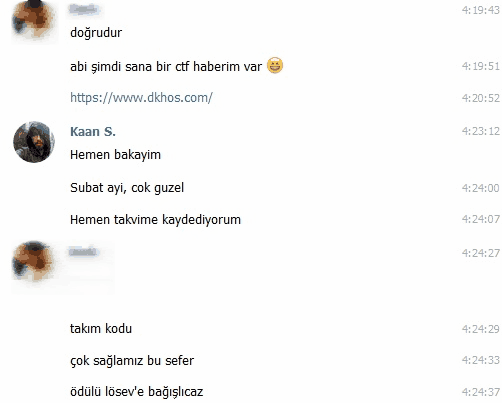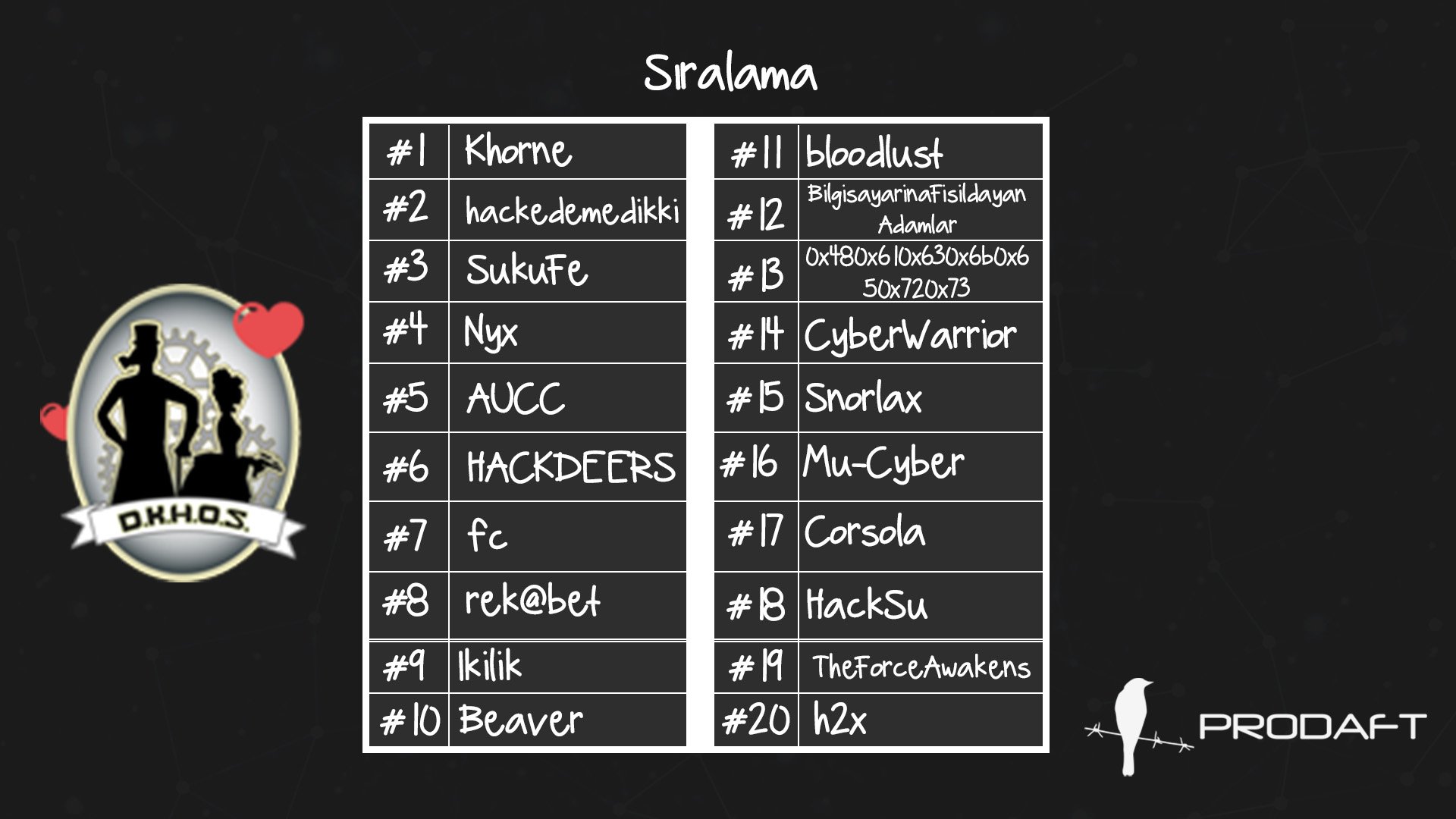Introduction #
In January 2018, I received an invitation to participate in DKHOS, one of Turkey’s most prominent Capture The Flag (CTF) competitions. Our team, KHORNE, entered with dual objectives: to secure first place and to donate all prizes to The Foundation for Children with Leukemia in Turkey.

Competition Overview #
DKHOS is the successor to previous competitions DKH and DKHO (Dunyayi Kurtaran Hacker & Dunyayi Kurtaran Hackerin Oglu), organized by Invictus/Prodaft. The competition has established itself as Turkey’s most innovative CTF event, incorporating unique physical elements—including placing an actual flag on the Bosphorus Bridge.

Team Strategy and Execution #
Our approach emphasized specialization and clear task allocation. Each team member focused on their area of expertise, allowing us to tackle challenges efficiently. The competition structure required:
- Initial momentum - Rapid solving of easier challenges to build confidence
- Specialized focus - Distributing complex problems to subject matter experts
- Perseverance - Working through multiple nights with minimal sleep
- Motivation maintenance - Regular reminders of our charitable objective
A critical moment occurred during the second night when team morale temporarily faltered:
"Remember why we're doing this. We're so close to making those children happy!"
After four days of intense competition, including working through regular business days and overcoming inter-team disputes, we achieved victory among 478 competing teams.

Technical Challenge Design #
The competition incorporated several innovative elements:
- Real-world scenarios - Challenges derived from authentic security situations
- Educational progression - Tasks structured to build and reinforce knowledge
- Live competition - A Twitch “hacking royale” where selected competitors tackled a machine with seven flags
Critical Analysis #
While the competition was well-executed overall, several aspects warrant critical examination:
Competition Design Issues #
- Point distribution imbalance - Group challenges awarded disproportionate points (up to 700) relative to individual challenges, creating scoring inequities
- Non-technical challenge elements - Some challenges relied on cultural knowledge rather than technical skill (e.g., inferring “WhatsApp service” from the Turkish phrase “naber”)
- Anti-cheating measures - Despite effective monitoring, legitimate teams faced unwarranted accusations
Security Industry Implications #
A significant observation concerns Turkey’s cybersecurity landscape, which emphasizes offensive security (red teaming) while neglecting defensive measures. As an Application Security Engineer with defensive security interests, I would recommend evolving the competition format toward Attack and Defense rather than purely Jeopardy-style challenges.
Conclusion #
Our victory in DKHOS CTF represents both a personal achievement and a contribution to a worthy cause. The competition provided valuable learning opportunities while highlighting areas for improvement in CTF design and broader security education.
I will be publishing detailed technical write-ups of specific challenges in subsequent posts, focusing on methodologies and security principles that can be applied in enterprise environments.
Note: This post reflects experiences from 2018 and the security landscape has evolved significantly since then.
